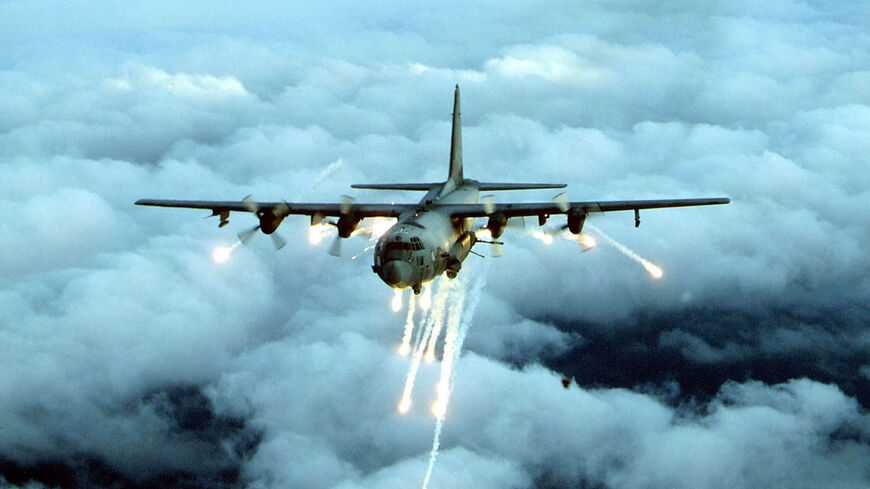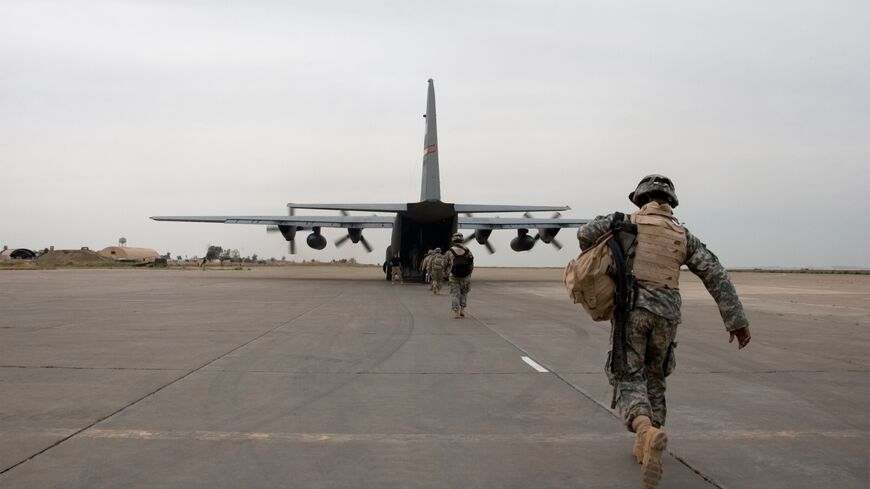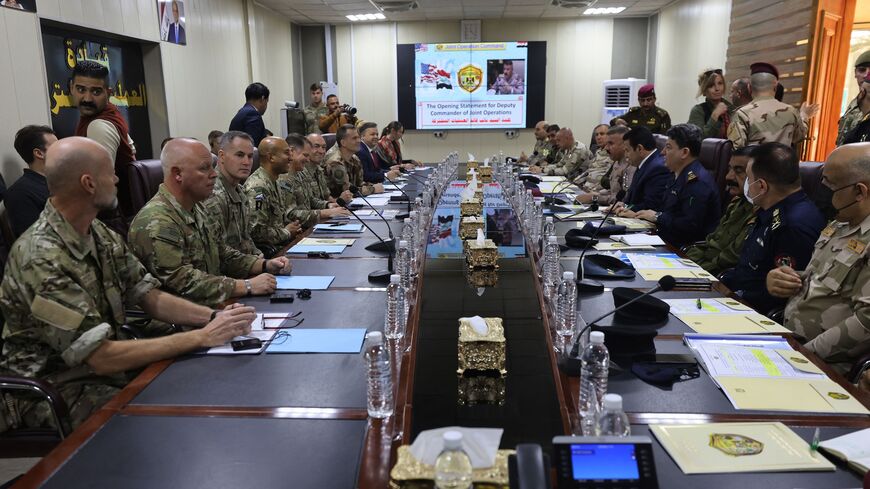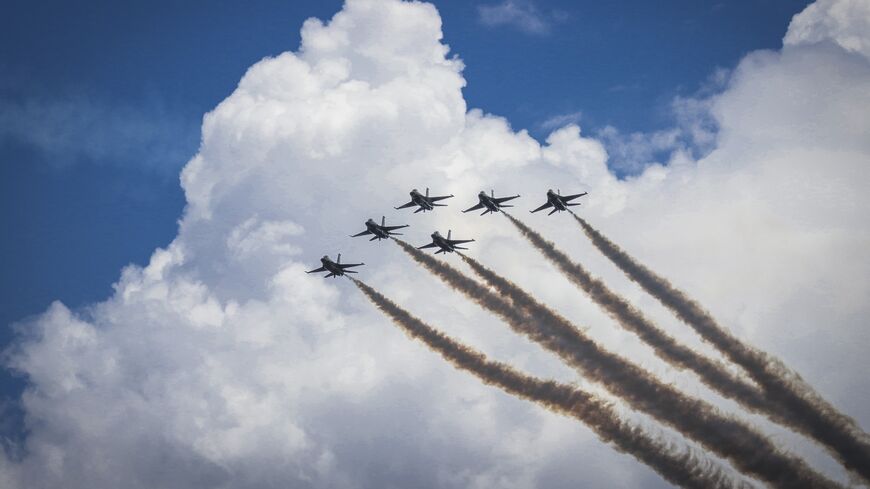US resumes talks with Iraq over future of troop presence
Negotiations between the Biden administration and a senior Iraqi delegation resumed in Washington on Monday as Baghdad has sought to establish an end-of-mission timeline for the 2,500 US troops that remain in their country.
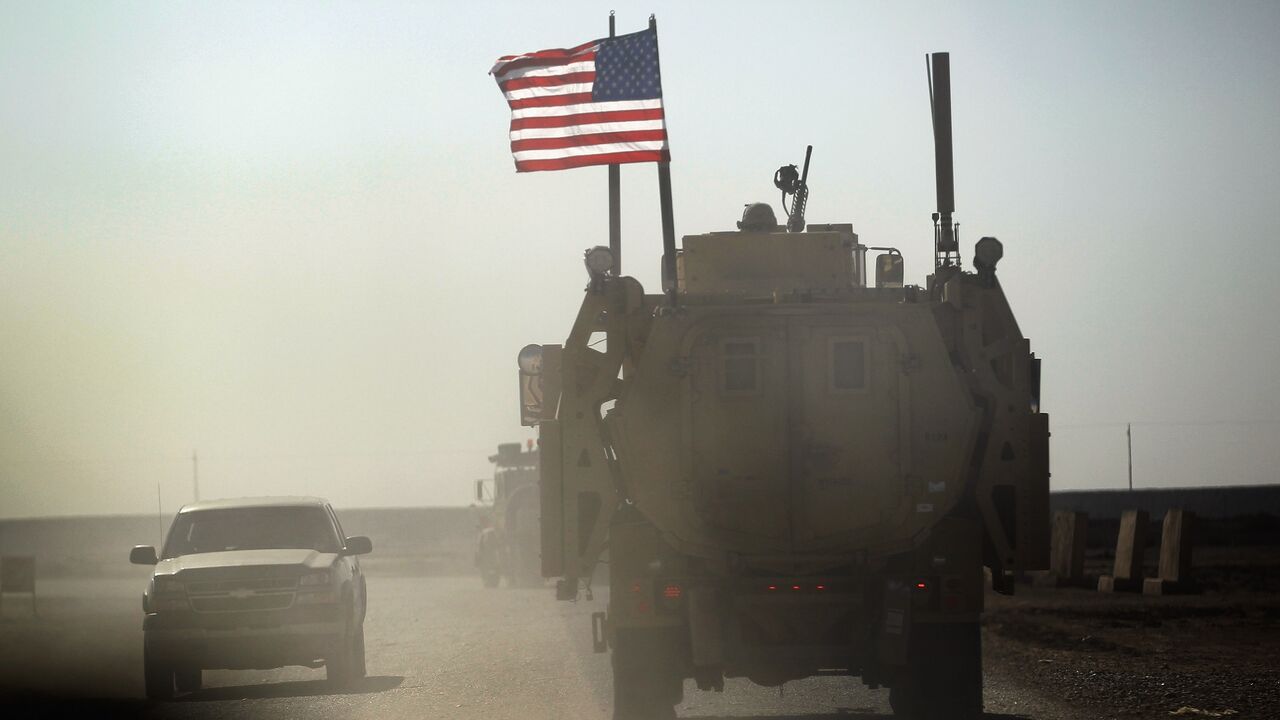
WASHINGTON — The Biden administration resumed negotiations with a senior Iraqi delegation about the future of the two countries' defense ties and the status of the roughly 2,500-strong US troop presence in their country during meetings at the Pentagon on Monday.
The latest round of ministerial-level talks built on a months-long joint review of the Iraqi military's capabilities, and comes as Prime Minister Mohamed Shia al-Sudani seeks a domestic win amid continued pressure by Iran-backed factions — increasingly incensed over Israel's war in Gaza — to oust American troops.
The discussions were to set to be led on the Iraqi side by Defense Minister Thabet Muhammad al-Abbasi, with US officials from the White House's National Security Council, the State Department, US Central Command (CENTCOM) and the Pentagon's Joint Staff attending.
Expected to be on the table is Iraqi Prime Minister Mohammed Shia al-Sudani's request for timeline for transitioning the current US advisory troop presence in Baghdad in the wake of the 2014-19 war against the Islamic State to a more "normal" bilateral defense relationship.
Whether that means an eventual withdrawal of US-led international coalition forces or rebranding some of them under another partnership mission remains uncertain.
Press Secretary Air Force Maj. Gen. Patrick Ryder refused to preview potential outcomes of the talks during a small briefing with reporters at the Pentagon on Monday.
During a visit to Washington in April, Sudani agreed with President Joe Biden that the two sides would "review factors to determine when and how the mission of the global coalition in Iraq would end and transition in an orderly manner to an enduring bilateral security partnerships," Ryder reiterated on Monday.
Why it matters: The talks aren't just about the coalition, however, Iraqi officials said. They are also set to comprehensively cover US-Iraq security relations, potentially redefining a cornerstone of the two countries' relations for the next decade as the Biden administration seeks a diplomatic path back toward de-escalation with Iran and its proxy militias across the region.
Iranian-armed militias have launched an irregular staccato of projectile attacks toward Israel and against commercial shipping in the Red Sea in recent months, in what they describe as retaliation that will halt only once Israel's campaign to unseat Hamas in the Gaza Strip ends.
The war has killed more than 39,000 Palestinians — more than any other flareup in the 75-year history of the Israeli-Palestinian conflict — after Hamas fighters broke out of the blockaded Gaza Strip and massacred some 1,200 Israelis, most of them civilians, on Oct. 7, 2023. Gaza health authorities say the majority of Palestinians killed in the war so far have been women and children.
Israel's campaign in Gaza has soured public opinion across the Middle East of the United States, which has provided Israel with the vast majority of its munitions.
US and Iraqi officials kicked off the dialogue track in August 2023, setting off a yearlong joint review of Baghdad's current military capabilities more than four years after the Islamic State group was wiped off the battlefield.
Sudani, who is aiming for a second term as Iraq's prime minister, is seeking a political win for his governing coalition, which is underpinned by political allies of Iran-backed militias that have long demanded the remaining US troops in Iraq be expelled from the country.
Know more: An Iran-aligned collective of Iraqi militias last month renewed threats to continue attacks on US forces in the country, potentially ending a monthslong informal truce set in February after the US retaliated for a lethal militia drone attack on a remote American drone base in the Jordanian desert.
The US responded by assassinating Kata'ib Hezbollah's top commander for operations in Syria in a drone strike on Feb. 7, setting in months of relative quiet that has been punctuated three times by attempted attacks on US bases in Iraq and Syria — the latest one last week at the Ain al-Asad Air Base in Anbar province.
Politico first reported in January the contents of a State Department cable that claimed Sudani privately does not want US troops to leave Iraq.

